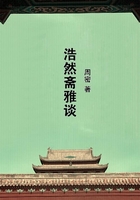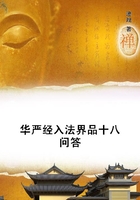In the House, they unanimously reversed the decision which, in the Committee, they had unanimously adopted. and passed a resolution importing that they relied with entire confidence on His Majesty's gracious promise to protect that religion which was dearer to them than life itself.313Three days later the King informed the House that his brother had left some debts, and that the stores of the navy and ordnance were nearly exhausted. It was promptly resolved that new taxes should be imposed. The person on whom devolved the task of devising ways and means was Sir Dudley North, younger brother of the Lord Keeper. Dudley North was one of the ablest men of his time. He had early in life been sent to the Levant, and had there been long engaged in mercantile pursuits. Most men would, in such a situation, have allowed their faculties to rust. For at Smyrna and Constantinople there were few books and few intelligent companions. But the young factor had one of those vigorous understandings which are independent of external aids. In his solitude he meditated deeply on the philosophy of trade, and thought out by degrees a complete and admirable theory, substantially the same with that which, a century later, was expounded by Adam Smith. After an exile of many years, Dudley North returned to England with a large fortune, and commenced business as a Turkey merchant in the City of London. His profound knowledge, both speculative and practical, of commercial matters, and the perspicuity and liveliness with which he explained his views, speedily introduced him to the notice of statesmen. The government found in him at once an enlightened adviser and an unscrupulous slave. For with his rare mental endowments were joined lax principles and an unfeeling heart. When the Tory reaction was in full progress, he had consented to be made Sheriff for the express purpose of assisting the vengeance of the court. His juries had never failed to find verdicts of Guilty;and, on a day of judicial butchery, carts, loaded with the legs and arms of quartered Whigs, were, to the great discomposure of his lady, driven to his fine house in Basinghall Street for orders. His services had been rewarded with the honour of knighthood, with an Alderman's gown, and with the office of Commissioner of the Customs. He had been brought into Parliament for Banbury, and though a new member, was the person on whom the Lord Treasurer chiefly relied for the conduct of financial business in the Lower House.314Though the Commons were unanimous in their resolution to grant a further supply to the crown, they were by no means agreed as to the sources from which that supply should be drawn. It was speedily determined that part of the sum which was required should be raised by laying an additional impost, for a term of eight years, on wine and vinegar: but something more than this was needed. Several absurd schemes were suggested. Many country gentlemen were disposed to put a heavy tax on all new buildings in the capital. Such a tax, it was hoped, would check the growth of a city which had long been regarded with jealousy and aversion by the rural aristocracy. Dudley North's plan was that additional duties should be imposed, for a term of eight years, on sugar and tobacco. A great clamour was raised Colonial merchants, grocers, sugar bakers and tobacconists, petitioned the House and besieged the public offices. The people of Bristol, who were deeply interested in the trade with Virginia and Jamaica, sent up a deputation which was heard at the bar of the Commons. Rochester was for a moment staggered; but North's ready wit and perfect knowledge of trade prevailed, both in the Treasury and in the Parliament, against all opposition. The old members were amazed at seeing a man who had not been a fortnight in the House, and whose life had been chiefly passed in foreign countries, assume with confidence, and discharge with ability, all the functions of a Chancellor of the Exchequer.315His plan was adopted; and thus the Crown was in possession of a clear income of about nineteen hundred thousand pounds, derived from England alone. Such an income was then more than sufficient for the support of the government in time of peace.316The Lords had, in the meantime, discussed several important questions. The Tory party had always been strong among the peers.
It included the whole bench of Bishops, and had been reinforced during the four years which had elapsed since the last dissolution, by several fresh creations. Of the new nobles, the most conspicuous were the Lord Treasurer Rochester, the Lord Keeper Guildford. the Lord Chief Justice Jeffreys, the Lord Godolphin, and the Lord Churchill, who, after his return from Versailles, had been made a Baron of England.
The peers early took into consideration the case of four members of their body who had been impeached in the late reign, but had never been brought to trial, and had, after a long confinement, been admitted to bail by the Court of King's Bench. Three of the noblemen who were thus under recognisances were Roman Catholics.
The fourth was a Protestant of great note and influence, the Earl of Danby. Since he had fallen from power and had been accused of treason by the Commons, four Parliaments had been dissolved; but he had been neither acquitted nor condemned. In 1679 the Lords had considered, with reference to his situation, the question whether an impeachment was or was not terminated by a dissolution. They had resolved, after long debate and full examination of precedents, that the impeachment was still pending. That resolution they now rescinded. A few Whig nobles protested against this step, but to little purpose. The Commons silently acquiesced in the decision of the Upper House. Danby again took his seat among his peers, and became an active and powerful member of the Tory party.317The constitutional question on which the Lords thus, in the short space of six years, pronounced two diametrically opposite decisions, slept during more than a century, and was at length revived by the dissolution which took place during the long trial of Warren Hastings. It was then necessary to determine whether the rule laid down in 1679, or the opposite rule laid down in 1685, was to be accounted the law of the land. The point was long debated in both houses; and the best legal and parliamentary abilities which an age preeminently fertile both in legal and in parliamentary ability could supply were employed in the discussion. The lawyers were not unequally divided. Thurlow, Kenyon, Scott, and Erskine maintained that the dissolution had put an end to the impeachment. The contrary doctrine was held by Mansfield, Camden, Loughborough, and Grant. But among those statesmen who grounded their arguments, not on precedents and technical analogies, but on deep and broad constitutional principles, there was little difference of opinion. Pitt and Grenville, as well as Burke and Fox, held that the impeachment was still pending Both Houses by great majorities set aside the decision of 1685, and pronounced the decision of 1679 to be in conformity with the law of Parliament.
Of the national crimes which had been committed during the panic excited by the fictions of Oates, the most signal had been the judicial murder of Stafford. The sentence of that unhappy nobleman was now regarded by all impartial persons as unjust. The principal witness for the prosecution had been convicted of a series of foul perjuries. It was the duty of the legislature, in such circumstances, to do justice to the memory of a guiltless sufferer, and to efface an unmerited stain from a name long illustrious in our annals. A bill for reversing the attainder of Stafford was passed by the Upper House, in spite of the murmurs of a few peers who were unwilling to admit that they had shed innocent blood. The Commons read the bill twice without a division, and ordered it to be committed. But, on the day appointed for the committee, arrived news that a formidable rebellion had broken out in the West of England. It was consequently necessary to postpone much important business. The amends due to the memory of Stafford were deferred, as was supposed, only for a short time. But the misgovernment of James in a few months completely turned the tide of public feeling.
During several generations the Roman Catholics were in no condition to demand reparation for injustice, and accounted themselves happy if they were permitted to live unmolested in obscurity and silence. At length, in the reign of King George the Fourth, more than a hundred and forty years after the day on which the blood of Stafford was shed on Tower Hill, the tardy expiation was accomplished. A law annulling the attainder and restoring the injured family to its ancient dignities was presented to Parliament by the ministers of the crown, was eagerly welcomed by public men of all parties, and was passed without one dissentient voice.318It is now necessary that I should trace the origin and progress of that rebellion by which the deliberations of the Houses were suddenly interrupted.















